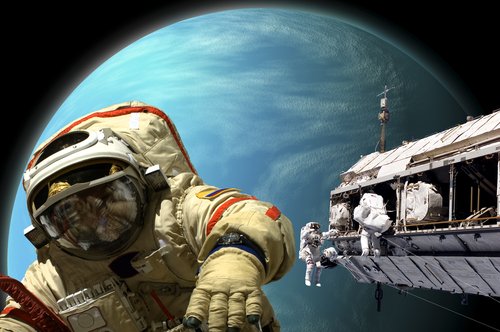Belgium (Brussels Morning Newspaper) NASA officials confirmed yesterday that a US astronaut currently on the International Space Station (ISS) is still scheduled to return to Earth aboard a Russian Soyuz capsule later this month, together with two Russian cosmonauts, despite the rising tensions between Moscow and Washington.
A crew of seven astronauts currently mans the ISS – four from the US, two from Russia and a German representing the European Space Agency (ESA). All seven have been in orbit since before the Russian invasion of Ukraine, and have witnessed relations between their respective space agencies deteriorate in recent weeks.
The Head of the Russian Roscosmos agency, Dmitry Rogozin, warned late last month that US and EU sanctions against Moscow could “destroy” ISS teamwork and bring about the demise of the venerable orbital laboratory itself. In an angry Tweet sent out after the sanctions were announced, Rogozin even threatened to abandon the station and let it crash over the US or Europe.
Rogozin has since pulled Russian engineers out from the European spaceport in French Guiana, and decided to end exports of Russian-made rocket engines, limiting future launches of rockets such as the Atlas V, which depend on Russian boosters and are partly assembled in Ukraine.
“We both need each other to operate the International Space Station”, said NASA’s ISS manager Joel Montalbano, announcing on Monday that the US astronaut would return home on a Soyuz craft as initially planned.
According to Montalbano, US-Russian cooperation on the ISS remains “free of tension.” All crew members continue to act professionally. “When you’re in space, there’s no borders”, he declared. “The teams continue to work together. Are they aware of what’s going on on Earth? Absolutely! But the teams are professional. They’ve trained to do a job, and they’re going to do that job.”
US astronaut Mark Vande Hei is slated to return to Earth on 30 March, together with Russian cosmonauts Pyotr Dubrov and Anton Shkaplerov. All will board a Soyuz capsule currently docked with the ISS and are expected to land in Kazakhstan, where a Russian-American team will greet them, including some 20 NASA personnel.




